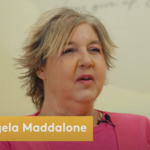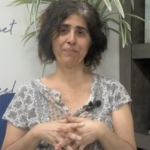Medically Reviewed by: Dr. Bautista
Our Editorial Policy
Updated on: September 12, 2024
About Liver Cancer
Liver cancer begins in the tissues of the liver, an organ that sits in the upper right portion of the abdomen, beneath the diaphragm and above the stomach. The liver has many functions. It helps store nutrients from food, aids with digestion, and clears toxins from the body.
Liver Cancer Types Include:
- Hepatocellular carcinoma (HCC), also called hepatoma
- Fibrolamellar HCC
- Cholangiocarcinoma
- Angiosarcoma, also called hemangiocarcinoma
- Secondary liver cancer, also known as a liver metastasis
Primary liver cancer, also known as hepatocellular carcinoma, is a type of cancer that forms in the cells of the liver, which is located in the upper right section of the abdominal cavity. According to the American Cancer Society , in the U.S., about 42,030 new cases (29,480 men and 12,550 women) will be diagnosed with liver cancer per year, with the average patient being an adult male over the age of 60. Of the liver cancer patients diagnosed, approximately 32,000 will die from the cancer. Outside of the states, it’s one of the most common types of fatal cancer, responsible for roughly 700,000 cancer deaths per year.
The liver, your largest organ, is responsible for three primary functions:
- Digest food
- Filter toxins
- Store energy
With cancer, over time, the cells mutate and break down, causing a failure in liver function . If left untreated, there’s a distinct possibility of the mutated cancer cells to grow into a tumor and/or spread to other organs in the body.
There are four primary types of liver cancer:
- Hepatocellular carcinoma (HCC) – Accounts for 75% of all liver cancer and is most commonly seen in long-term alcoholics. Cancer develops in the liver’s primary liver cells, hepatocytes, and then spreads to the stomach, pancreas, and intestines.
- Cholangiocarcinoma – Also known as bile duct cancer, accounts for 10% to 20% of all liver cancer.
- Liver Angiosarcoma – A rare form of cancer that occurs in the liver’s blood vessels. It’s difficult to detect and progresses rapidly, so by the time a diagnosis does occur, it’s typically already at an advanced stage.
- Hepatoblastoma – An exceedingly rare form of cancer that almost exclusively occurs in children under the age of 3. Detected in the early stages, this form of cancer is one of the most successfully treated in the country.
Causes and Risk Factors for Liver Cancer
Although the specific causes remain unknown, HCC is one of the few forms of cancer with easily identifiable links between behavior and development. Risk factors include:
- Aflatoxin exposure – Poisons from molds on improperly stored crops.
- Cirrhosis – Scarred liver tissue , often caused by drinking.
- Diabetes – Blood sugar disorder.
- Extreme alcohol use and/or abuse – Leads to permanent liver damage.
- Hepatitis B Virus (HBV) and Hepatitis C Virus (HCV) – Chronic infection that impacts all organs, but especially the liver.
- Nonalcoholic fatty liver disease – Buildup of fat in the liver.
Early Detection, Diagnosis, and Staging
Unfortunately, the vast majority of liver disease symptoms don’t manifest in the early stages. When they do occur, liver cancer symptoms and signs can include:
- Abdominal pain in your upper region
- Abdominal swelling
- Fatigue
- Involuntary weight loss
- Jaundiced skin
- Loss of appetite
- Nausea
- Vomiting
- Weakness
- White chalky stool
Stages of Liver Cancer
There are four stages of primary liver cancer and each stage could require a specific cancer therapy or alternative treatment plan, surgery, or even a liver transplant. In brief, they are:
- Stage I – Single mass in the liver that has yet to spread to blood vessels.
- Stage II – Single mass in the liver that has spread to blood vessels, or multiple liver tumors that are less than 2 inches wide.
- Stage III – Multiple liver tumors, with at least one larger than 2 inches wide, or, cancer has spread into adjoining organs but not the lymph nodes or distant organs.
- Stage IV – The liver tumor (s) has spread into the lymph nodes, or distant organs like the lungs, bones, and brain.
Reducing the Risk of Liver Cancer
Preventative measures are crucial in minimizing the risk of liver cancer. . Implementing the following preventive steps can significantly contribute to reducing the likelihood of developing liver cancer:
- Moderating Alcohol Consumption – Limiting alcohol intake is paramount in decreasing the risk of liver damage and cirrhosis, both of which are closely associated with liver cancer. For those who consume alcohol, it is essential to do so in moderation and avoid excessive or chronic alcohol use.
- Embracing Healthy Lifestyle Choices – Adopting a balanced and nutritious diet is vital for maintaining overall well-being and reducing the risk of liver disease. A diet rich in fruits, vegetables, whole grains, and lean proteins supports liver health. Coupled with regular exercise and maintaining a healthy weight, these lifestyle choices can play a pivotal role in safeguarding the liver.
- Vaccination against Hepatitis B – Hepatitis B is a major risk factor for liver cancer. Getting vaccinated against this virus can significantly lower the risk of liver cancer, particularly for individuals at higher risk of contracting the infection. Vaccination is especially important for those who work in healthcare settings, those with multiple sexual partners, and individuals with a history of intravenous drug use.
By integrating these preventive measures into one’s lifestyle, individuals can proactively safeguard their liver health and potentially reduce the risk of liver cancer . Always consult with healthcare professionals to determine the most appropriate preventive strategies based on individual health circumstances and risk factors.
About Natural/Alternative Therapy for Liver Cancer in Mexico
Receiving a liver cancer diagnosis is a challenging and critical moment that requires informed decision-making. Conventional treatments like chemotherapy, radiation therapy, and surgery have proven to be effective in combating liver cancer. However, it’s important to acknowledge that these treatments may come with side effects that can weaken the patient’s immune system and affect their overall well-being. This is where alternative therapies can play a significant role in treating cancer patients. Chemotherapy, radiation therapy, or some form of surgery may be effective in combating tumor cells, but they often leave cancer patients physically depleted and weaken their immune systems, making it more challenging to fight the disease. However, alternative liver cancer treatment offers a natural solution to maintain recovery while regulating side effects from more traditional cancer therapy.
If you have been diagnosed with adrenal cancer, the Immunity Therapy Center offers a full range of alternative, natural immunotherapy treatments to help you manage it. We have over 20 years of experience treating many types of cancers including but not limited to: kidney cancer, colorectal cancer, and bladder cancer. Our team is committed to providing a targeted therapy plan structured around your specific condition and health needs. We offer one-on-one consultations with Dr. Bautista, which ensures that we get to know you personally and build an actual relationship to provide you with the best alternative cancer treatment for adrenal cancer. For more information about liver cancer treatment in Mexico or to receive a free consultation, please contact us today.
FAQs on Liver Cancer
1. What is alternative liver cancer treatment, and how can it benefit patients?
An alternative liver cancer treatment focuses on natural therapies to manage liver cancer. Unlike traditional cancer treatment, these treatments aim to support the body’s immune system and promote overall well-being. For example, patients may explore targeted therapy options designed to address specific cancer cells while minimizing damage to healthy tissues. Alternative treatments can help liver cancer patients maintain quality of life during their recovery journey.
2. Can alternative treatments help with secondary liver cancer?
Yes, alternative treatments can be an option for those dealing with secondary liver cancer. These therapies may involve natural methods to strengthen the immune system and promote liver health, potentially slowing tumor growth and preventing the spread of cancer cells.
4. Are there alternative treatments for metastatic liver cancer?
For patients with metastatic liver cancer, alternative therapies can offer supportive care aimed at managing cancer cells that have spread to other parts of the body. These treatments may help reduce symptoms and improve quality of life without the need for invasive interventions like liver transplantation or extensive surgeries.
5. How can alternative treatments help prevent the progression of primary liver cancer?
Alternative therapies can be particularly useful in the early stages of primary liver cancer by focusing on natural ways to maintain liver function and prevent tumor growth. Patients may adopt holistic practices, such as specific dietary changes and immune-boosting treatments, to support overall health and reduce the risk of advanced liver cancer.
Sources:
- American Cancer Society. Key Statistics About Liver Cancer. https://www.cancer.org/cancer/liver-cancer/about/what-is-key-statistics.html
- Ringehan, M. NCBI. Viral hepatitis and liver cancer. (2017). https://www.ncbi.nlm.nih.gov/pmc/articles/PMC5597741/
- Stanford Health Care. Liver Cancer Staging. https://stanfordhealthcare.org/medical-conditions/cancer/liver-cancer/liver-cancer-stages.html
At Immunity Therapy Center, our goal is to provide objective, updated, and research-based information on all health-related topics. This article is based on scientific research and/or other scientific articles. All information has been fact-checked and reviewed by Dr. Carlos Bautista, a Board Certified Medical Doctor at Immunity Therapy Center. All information published on the site must undergo an extensive review process to ensure accuracy. This article contains trusted sources with all references hyperlinked for the reader's visibility.
Customized Care For the Body And The Mind
Discuss Your Custom Alternative Treatment Plan With Our Team Today
Hear from Our Patients
See why the Immunity Therapy Center is a trusted name for medical tourism and cancer treatment centers in Mexico.
Start Your Healing Journey with a FREE Consultation
At ITC, we understand the importance of feeling heard and supported. Fill out our form, to speak with one of our patient advocate in the next 24 hours to have a free consultation and guidance, creating a personalized treatment plan just for you. You’re not alone on your path to healing. We’re here to support you through every step!







